Agriculture used to be Nigeria’s mainstay of the economy before oil was discovered, providing livelihoods for thousands of Nigerians. However, Nigeria’s agricultural sector is gradually coming up as it now contributes to a significant part of the country’s GDP.
The sector has been facing several challenges ranging from regular flooding of farmlands, herdsmen-local farmers clashes to climate change among others.
Food processing industry has also been encumbered by lack of financing and infrastructure, thus exacerbating food inflation. It will be recalled that President Bola Tinubu, had in June declared an immediate “State of Emergency on food insecurity in Nigeria” to tackle increasing food prices.
In this interview with Persecondnews AJUMA EDWINA AMEH, an Agricultural extension specialist, farmer, researcher, and CEO of LanseFarms Nigeria Limited, Akintobi Olanrewaju, talks about agricultural industrialization in Nigeria and the potentials inherent in it if proactively executed.
Excerpts:
The Agriculture situation in Nigeria
President Bola Tinubu mentioned three months ago that there is a state of emergency in our agricultural sector. The situation is dire, it is critical. the agricultural situation in Nigeria is common to what is happening in every other sub-Saharan Africa. The number one challenge that we have is around security. Beyond having issues of Capital, issues around production knowledge, issues around logistics or infrastructural development, Issues around premium markets and even the low purchasing power of Nigerians, there is also issues of insecurity that has ravaged our farms in the last years. So, the situation is very dire, unlike what we saw 10 or 20 years ago. The agricultural situation in Nigeria needs help.
Contribution of Agricultural industrialization to Nigeria’s economic growth
Agricultural industrialization refers to the process of modernizing and transforming the agricultural sector of a country by incorporating industrial practices or technologies. The potentials of agricultural industrialization towards any country’s development cannot be overlooked, most especially a country like Nigeria which is rich in agriculture. Agricultural industrialization focuses on developing robust value chains by improving post-harvest handling, processing, storage, and distribution systems. This involves the establishment of agro-processing industries, storage facilities, cold chains, and efficient transportation networks to minimize wastage and maximize value addition.
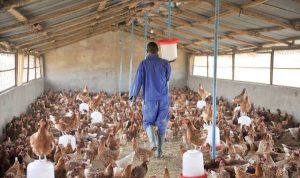
When it comes to agriculture, there are lots of value chains; we are talking about crop production, animal production, processing, Marketing, and even logistics. Let me talk about the animal production sector of agriculture. If we look at animal production sector and develop industries around the sector, it will contribute immensely to the Economic development of Nigeria. When you grow your poultry, what are the value chains that we can develop? What are the opportunities that are there? In this sector alone, we have the input supplier; that is the day-old chicks supplier. How can we support them? Each agricultural sector in Nigeria needs support. If we support them with skills, capital, infrastructural developments, you will see a lot of contributions. There will be tax, there will be employment and we will reduce importation and increase exportation. If we do all these it will grow the economy.
Agricultural industrialization will open up more grounds and cultivation of crops, which can be processed into value-added products which will directly enhance foreign earnings.
Sectors of agriculture with the highest potential for industrialization.
We have a lot of sectors we are not looking into. The government focuses more on the producers, they focus more on arable production. When I say Arable production, I mean people who grow food in the fields; Cassava, Maize , Rice etc. Beyond that, other sectors are also adding value. The animal production sector is there, what about logistics and marketing? These are sectors that are very important. I’m not saying that crop production is not important, but let us not focus on only crop production, let us also focus on animal production. For example, let’s take a look at rabbit. Rabbit is important for consumption, important for crop production. You can rear it in your house regardless of where you are. The poop is used for organic manure, which is usually used for vegetable production. The meat is sweeter and more nutritious than that of poultry. Rabbit urine is used as fertilizer. We use a lot of fertilizer to grow food, and it has effects on our health. Now, rabbit urine is organic fertilizer, so you’re not putting in any chemical into the soil. The thing about agriculture is that it is self sustainable, there’s no waste products.
Challenges/opportunities for agricultural industrialization in Nigeria.
The challenges are numerous, but the key challenge especially for people who are 100 percent involved in agriculture is capital. So many people want to go into agriculture but can’t just enter with just N50,000. They need financial backing to be successful. They need capital to set up their farm, buy a couple of machines, and be able to sustain themselves. What about skills? You don’t have to study agriculture before you venture into it. Who are those teaching people to improve their skills when it comes to agriculture?
A lot of our farmers are people who are old, and the orientation they have about agriculture is from their fathers to their grandfathers to their great-great-grandfathers. There are new improvements or innovations in agricultural practices almost every decade. So, who is giving people these innovative processes or good agricultural practices that will give them even more value from their soil? So, there is a gap between capital and skill development. The conventional one now is climate change. People will ask what is climate change? does it affect agriculture? Our agriculture contributes least to climate change because we’re actually removing the greenhouse gardens. Our plants take in carbon dioxide and release its oxygen, So we least contribute to the effects of the greenhouse gardens. But, we are the most affected in climate change because when there is drought It affects our crops. Nigeria is rain-dependent on the agriculture that we practice. We depend on the rain because many of the people cannot afford to irrigate their farms.
I think the major challenge is capital, skill development, insecurity and climate change.
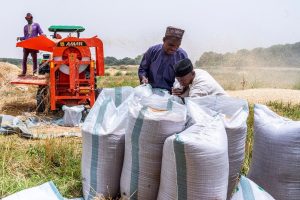
Integration of smallholder farmers, rural communities into the process of agricultural industrialization in Nigeria
The successful implementation of agricultural industrialization in Nigeria has the potential to transform the sector, increase food production, reduce rural poverty, and generate employment opportunities. However, challenges such as limited access to finance, inadequate infrastructure, and the need for capacity building among farmers and stakeholders must be addressed to realize the full potential of agricultural industrialization in Nigeria.
It’s more around adding value to the industry, That is what industrialization means, adding value throughout the value chain. I met a lady in Jos, and what she does is processing broccoli. Broccoli is a highly perishable crop, within two days it turns yellow and no longer safe for consumption. What this lady does is that she goes to the farming communities where they farm a lot of broccoli and buy these Vegetables from them. She dries them and processes it into powder. You can buy this powder, use it to make swallow and eat with any soup. Now, Imagine If that lady is not in that location in Jos, that means all the broccoli these farmers are producing will go to waste. The farmers will be like ‘if I plant this broccoli this year and it goes to waste and I lose money, I won’t plant it next year. Before you know, we’ll start having a scarcity of broccoli in Nigeria and start looking at importing when we can do that in-house. So, now if you have modular processing facilities in these farming communities, we will be able to add value and reduce the level of wastage. By adding value, that means they will be able to also employ people.
Role of technology, innovation in Driving Agricultural Industrialization in Nigeria
When we say technology, we are not even talking about big machines, because for someone that is slicing tomatoes If you bring super tech machines, who is going to operate it, what is the management technique or practices to ensure that it is diarble or workable. We can look at the challenges and check how we can use local technology to improve this Processing. Asides Processing, there is also deficiency of social infrastructure.
For example, if there is no light and you want to bring in a processing plant and there’s no electricity to power it, how will you use it? you want to use fossil fuel, how much are they selling diesel now and how much is petrol? Technology can come in and improve, but we don’t need very big technology. What we can do is to look at the local technology that we can use to improve. Let me give you an instance, to make garri, when you extract the water and put it in a pan, you have to start moving it in the pan while frying etc. There is a local technology now that you don’t have to do anything, you just pour it in and the machine and fries iitself. The good thing about this technology is that it is locally made. It saves you the stress of sitting under the sun or close to the fire to fry garri. It also triples the quantity. If one person can produce about 50kg, this machine can produce 150kg under the same our.
Support local technicians, agricultural technicians, because that is the way they can innovate. Our problems are peculiar to us, so you need peculiar solutions for peculiar problems. If you go abroad and say you want to get garri frying machines, they don’t eat garri over there, and so if you are going to solve the local problems, you have to use local innovations. People that are doing these local innovations, we have to look for a way to support them and improve their system.
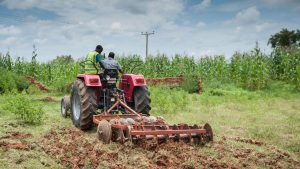
Lessons Nigeria can learn from countries that have successfully undergone agricultural industrialization
I think the lesson is improving the social infrastructure deficit. If we are processing in the communities and say we are reducing wastage, what if the road is not good? Will that not add to the logistics and cost of products? If the road is good and the technology is terrible or no energy to power our local technology, we are still saying the same thing. So, let them solve the social and infrastructure deficit first. Even with this deficit, we are still trying our best.
One of the things we can also do is to look at how we can move from low-production to high-production. People are saying we should buy tractors. I’m actually against tractors, it cost around N10 to N15 million, it depends. The thing is we don’t have enough tractor mechanics in Nigeria, so when the tractor goes bad who is going to repair it? In Europe an average tractor life span is 15 years, in Nigeria it is five years, that is why you see in some local government areas a lot of tractors are parked because they are not working anymore. So, the question now is why are we buying tractors when we know that after five years it won’t be useful anymore? China did not start with tractors. They operated with antlers, things that you can push and it will plant for you. If you buy these antlers it’s ok. If you do this, what you have done is that you have improved their production level. Farmers that are using hoe and cutlass to plant maybe five hectares before, can now go as far as planting 10 hectares and that will increase food production.
Now to use one tractor on one hectare of land is around N150,000. Now if we want to do 5 hectares that is over N500,000. How many farmers in these communities can afford N500,000 for just ploughing alone. We need to start understanding how countries that are successful did it.
Potential market, export opportunities for Nigeria’s agricultural products resulting from industrialization
We have a lot of things to export. We were once the highest cocoa producer, we were once the highest palm oil exporter, we were once the highest exporter of cash crops, but because of lack of interest; oil has taken away our interest in agriculture, we are now the backbenchers. Cocoa for instance to export. Ghana is doing an amazing job in Cocoa production. The value of processed cocoa is like 30 times higher than unprocessed cocoa.
So if you sell one cocoa at N1, if you process it in Nigeria you’ll sell it for N30, so why are we now exporting unprocessed cocoa when we can get more value from processing it? If you look at it, is because we don’t have modular processing centres, we just export as we harvest. Another thing about cocoa is that it sells by weight, the more you delay in the export, it starts shrinking and loosing weight and the value also reduces.
We have the opportunity to export, especially our cash crops, but we are not even producing enough to feed us. I think before we start looking at even exporting, we need to be self-sufficient. The road to self-sufficiency is for us to be able to put things in the right way and right perspective.
Let me give you an example, snail slime. There’s now a machine you can use to extract snail slime without killing it. A liter of snail slime is over N40,000. The Asians are begging Nigeria to produce snail slime, they are looking for snail slime everywhere.
This is something we can export and get cool foreign exchange, but nobody knows about snail slime, nobody even knows about it. If we start talking about it, we will be giving people the opportunity to make money that will add value to the economy.














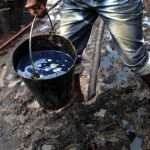








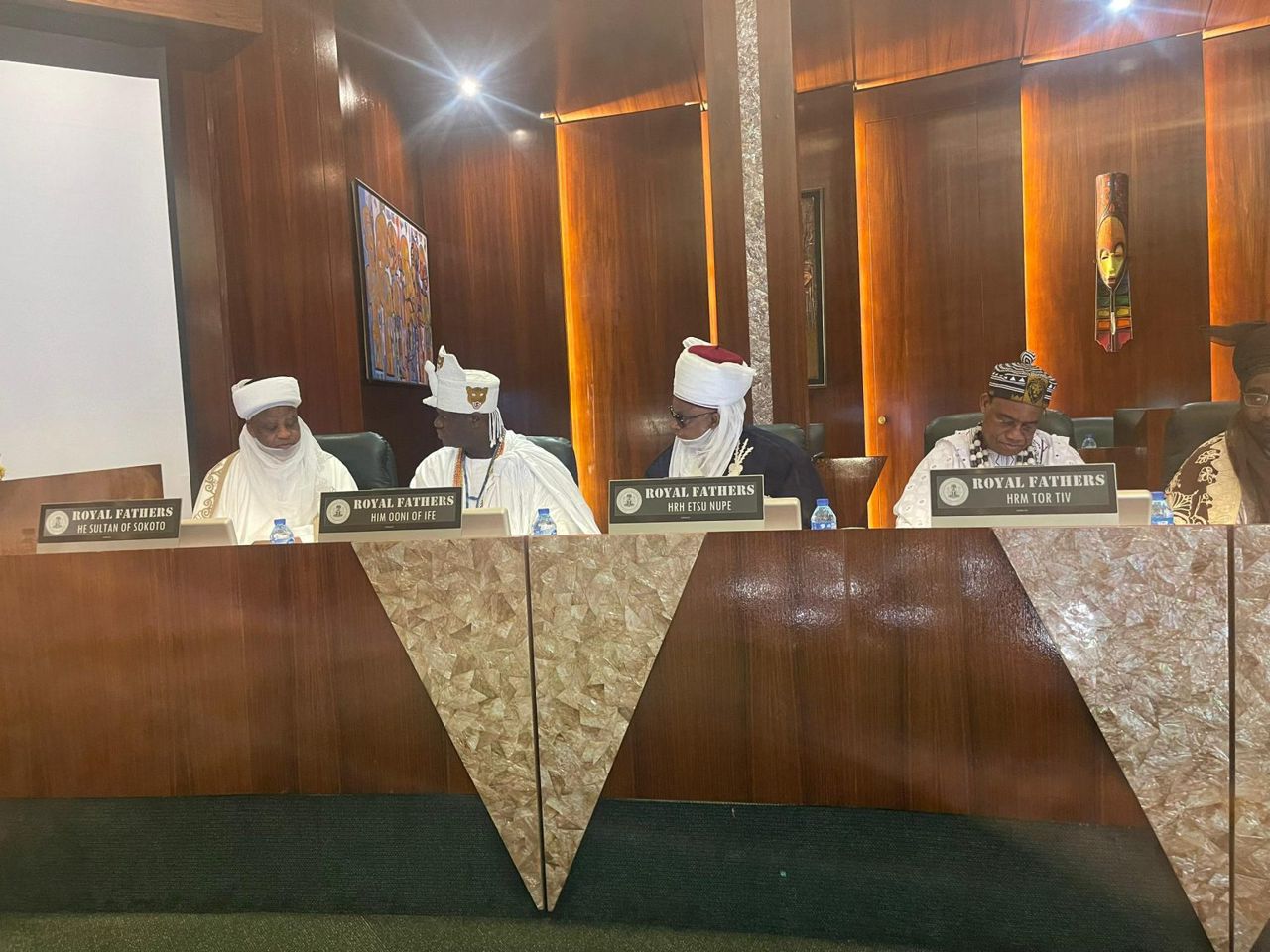






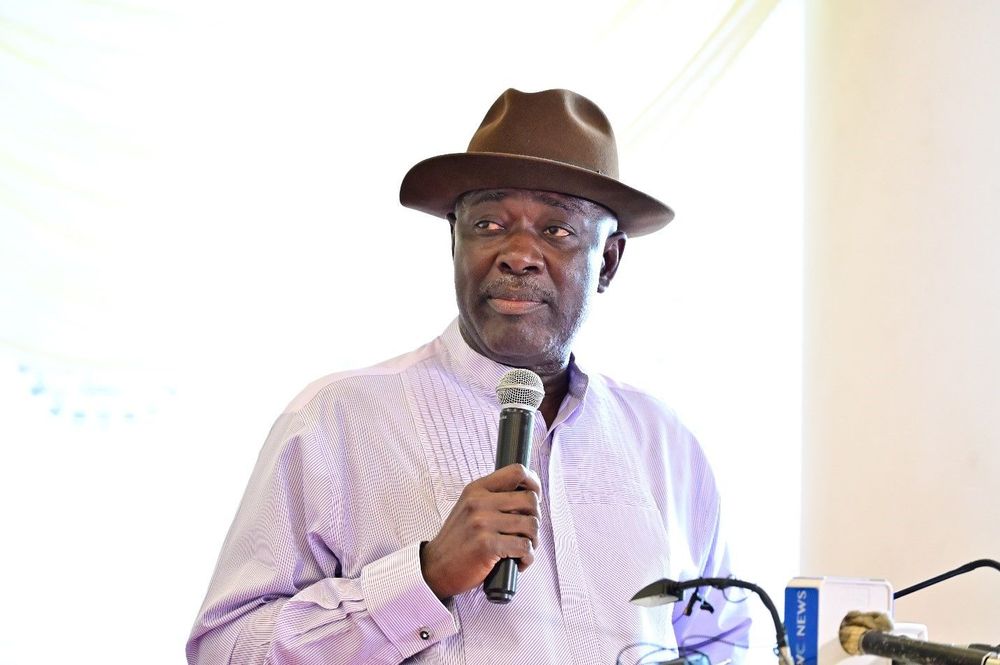


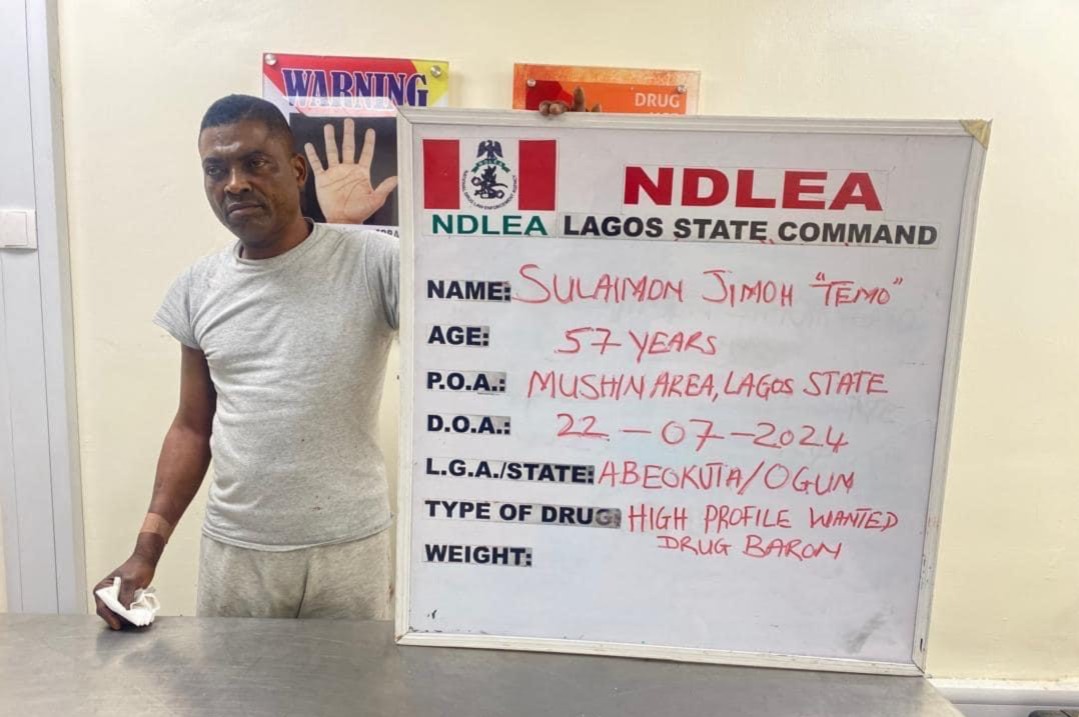



Leave a comment